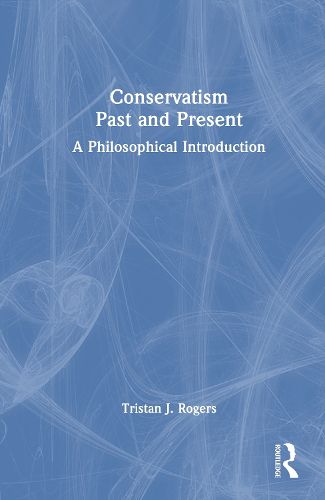Readings Newsletter
Become a Readings Member to make your shopping experience even easier.
Sign in or sign up for free!
You’re not far away from qualifying for FREE standard shipping within Australia
You’ve qualified for FREE standard shipping within Australia
The cart is loading…






In Conservatism, Past and Present: A Philosophical Introduction, Tristan J. Rogers argues that philosophical conservatism is a coherent and compelling set of historically rooted ideas about conserving and promoting the human good. Part I, "Conservatism Past," presents a history of conservative ideas, exploring themes, such as the search for wisdom, the limits of philosophy, reform in preference to revolution, the relationship between authority and freedom, and liberty as a living tradition. Major figures include Aristotle, Saint Thomas Aquinas, Edmund Burke, G.W.F. Hegel, and Roger Scruton. Part II, "Conservatism Present," applies philosophical conservatism to contemporary conservative politics, focusing on issues such as nationalism, populism, the family, education, and responsibility.
Rogers shows that conservatism has been defined differently at different times: as a loose set of connected ideas reacting against the French Revolution; as a kind of disposition or instinct in favor of the status quo; and more recently as any ideas opposed to the political left. But he also allows a set of questions to guide his argument for conservatism's merits: What is conservatism? Is it a coherent and attractive philosophy? What are conservatives for? And how is today's conservatism related to its past? In his answers, Rogers paints a compelling and coherent picture of an aligned and attractive set of ideas.
$9.00 standard shipping within Australia
FREE standard shipping within Australia for orders over $100.00
Express & International shipping calculated at checkout
In Conservatism, Past and Present: A Philosophical Introduction, Tristan J. Rogers argues that philosophical conservatism is a coherent and compelling set of historically rooted ideas about conserving and promoting the human good. Part I, "Conservatism Past," presents a history of conservative ideas, exploring themes, such as the search for wisdom, the limits of philosophy, reform in preference to revolution, the relationship between authority and freedom, and liberty as a living tradition. Major figures include Aristotle, Saint Thomas Aquinas, Edmund Burke, G.W.F. Hegel, and Roger Scruton. Part II, "Conservatism Present," applies philosophical conservatism to contemporary conservative politics, focusing on issues such as nationalism, populism, the family, education, and responsibility.
Rogers shows that conservatism has been defined differently at different times: as a loose set of connected ideas reacting against the French Revolution; as a kind of disposition or instinct in favor of the status quo; and more recently as any ideas opposed to the political left. But he also allows a set of questions to guide his argument for conservatism's merits: What is conservatism? Is it a coherent and attractive philosophy? What are conservatives for? And how is today's conservatism related to its past? In his answers, Rogers paints a compelling and coherent picture of an aligned and attractive set of ideas.